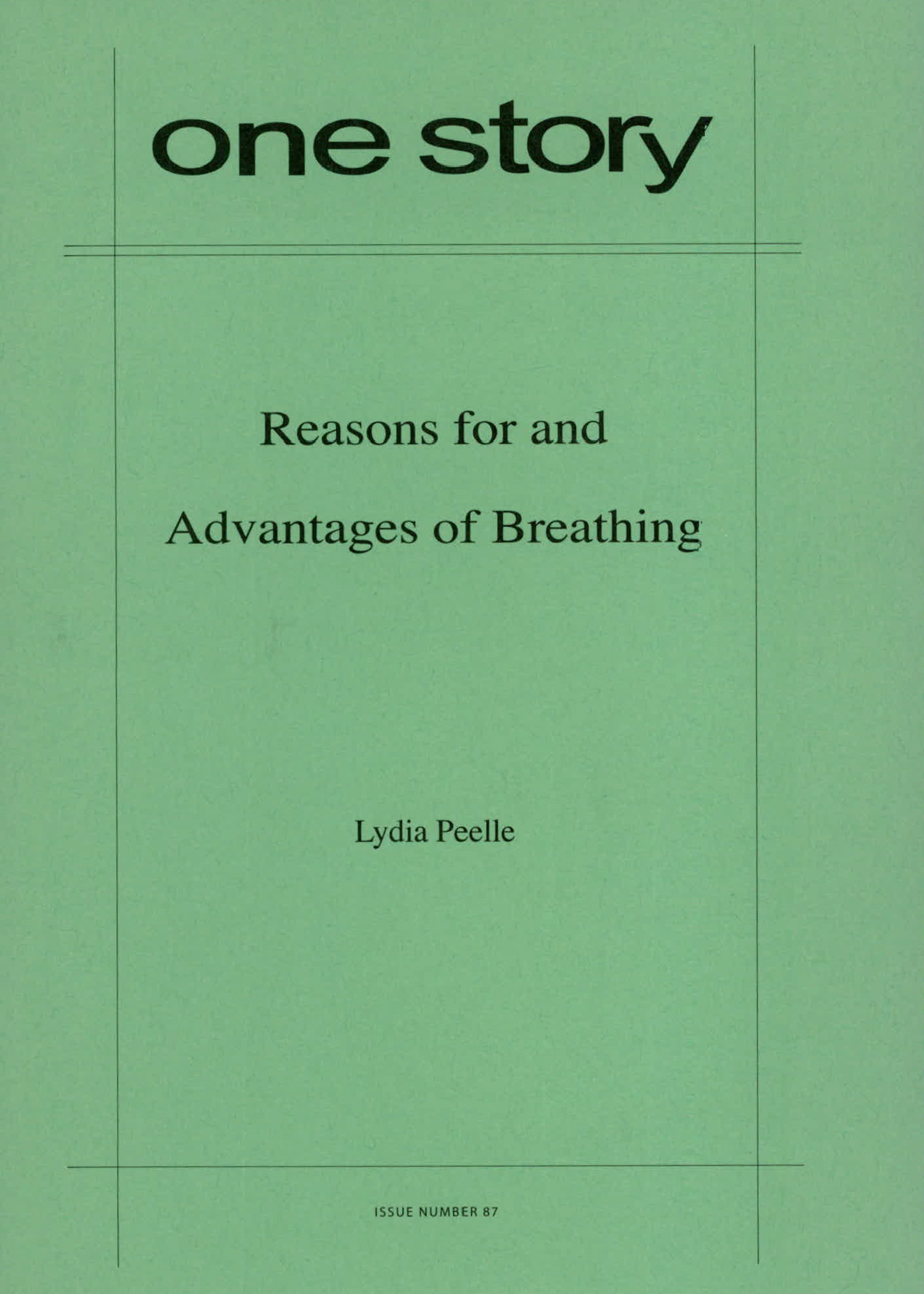
Reasons For and Advantages of Breathing
$2.50
Sold out
Excerpt
I meet the herpetologist on the bus. Rush hour is in its deepest throes, a snow storm has clamped down on the city, and the bus is packed with people in bulky coats, impatient and aggressive at the end of the day. Trapped at the center of the crush, I am starting to doubt that I will be able to hold it together all the way to my stop. Then a surge from behind sends me sliding into the man in front of me, and the flaps of a cardboard box he is holding pop open. I find myself looking down at a turtle, its shell mapped with orange and yellow and green. A turtle! I say as he gently folds the flaps back down. Then, shocked to hear myself unlock a door to conversation, Do you mind if I see it again? He opens the box just enough for me to see inside. Are you particularly interested in reptiles? he says kindly. Absolutely, I say, though it isn’t true. I just want to keep looking at the turtle, which has drawn its head inside its shell, so utterly still and complacent in the midst of the chaos of the bus.
Lydia Peelle
Lydia Peelle was born in Boston. Her fiction has appeared in Epoch, Pindeldyboz, The Sun, Best New American Voices 2007 and The O. Henry Prize Stories: 2006. She is currently a fellow at the Fine Arts Work Center in Provincetown.
Q&A by Hannah Tinti
- HT: Where did the idea for this story come from?
- LP: I was walking in a newly mown field in Virginia, kicking through a cut pile, when a bright green blade of grass wrapped itself once around my ankle and darted across the path into the low hanging branch of a tree—not a blade of grass at all, I realized, but a brilliant green grass snake. I went home and wrote down everything I knew about reptiles, but it stayed in a drawer for six months before I took it out again. I knew from the start that I wanted it to stay in distinct “sections,” as I had initially written out my notes, and pretty quickly I realized that it was a story about a woman who needs help.
- HT: How did you decide on the structure? In what way do the headings reflect each of the sections?
- LP: For some reason, the headings in my high school biology book always fascinated me—the way they so cleanly and efficiently broke up the blocks of text, stark and matter-of-fact, unequivocal, yet so often poetic in their straight-forwardness. The organization of chaos. I wanted to evoke that sense, and the satisfaction of reading something where everything (apparently) can be classified into discrete “sections.”
- HT: The details in this story are so vivid. Have you ever studied Herpetology?
- LP: No, not in school. But I have always loved to read about and explore the natural world. I have spent a lot of time with biologists, who thrill me. I am always inspired by their curiosity and awe of the world that surrounds us.
- HT: Why did you choose to set the story over the holidays?
- LP: Winter, in general, was such a wonderful contrast to the tropical world of the reptiles and amphibians. It also felt to me like the main character herself is in a very frozen state of being, and it seemed right for her to be walking around in a frozen city. And the holidays, in particular, are such a horrible time to be alone. Also, I love how deserted university campuses get for that month of mid-December to mid-January, when all the students leave, and liked thinking of the herpetologist there, alone, tending to what feels to be the only living things left on campus, the animals in the lab.
- HT: Why do you think the narrator responds so much to reptiles? Is it because of the heat?
- LP: At first, yes. But you can’t spend a lot of time around reptiles and amphibians without seeing the world through new eyes (or so it seems to me). They are so different from us, so ancient, and have developed the most fascinating ways of coping with the challenges that living presents. I think they put things into perspective.
- HT: What is the best bit of advice about writing you have ever received?
- LP: Kill your darlings.
- HT: What are you working on now?
- LP: Whales, shipwrecks, mountain lions, floods.